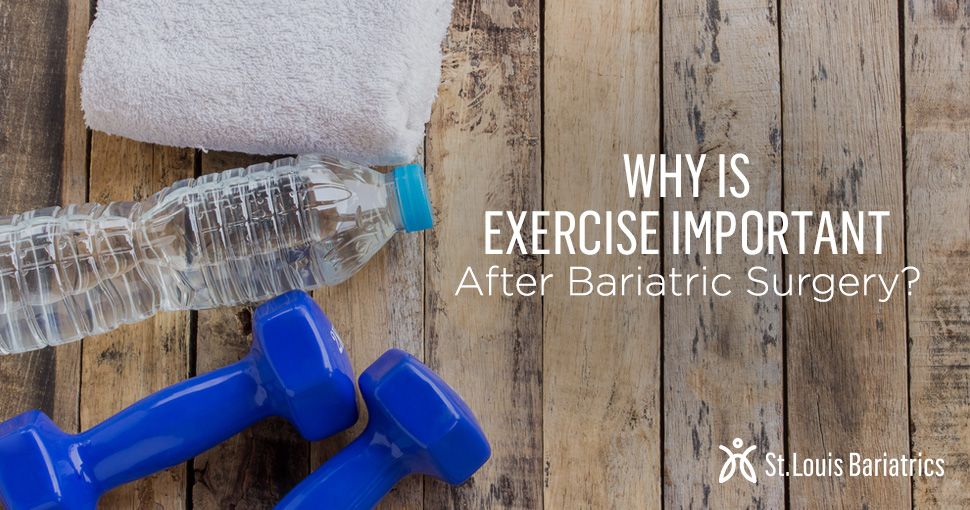Why Is Exercise Important After Surgery?

Exercise is a necessary component of your bariatric surgery and weight loss journey. Being physically active every day can provide long term health benefits! Daily physical activity may help you:
- Move around more easily
- Have more sound sleep at night
- Feel better about yourself in general
- Have stronger bones and muscles
- Enjoy being with friends
- Excited to meet new people
- Enjoy yourself and have fun
- Make healthier food choices
- Increasing your longevity
- Decrease depressing feelings
Types of physical activity:
- Aerobic activity: These are exercises that are considered to be moderate or vigorous activity. When participating in an aerobic activity, it will take more effort and your heart is going to beat faster. Moderate and vigorous activities will help you meet your daily physical activity needs after bariatric surgery. Light intensity activities might include walking casually, grocery shopping, and doing light household chores. Light activities do not count towards meeting your physical activity needs. You will experience the greatest results by participating in activities that increase your heart rate on a daily basis, or as often as possible!
- Moderate intensity workout: walking briskly, bicycling less than 10 mph, gardening, dancing, golf, water aerobics.
- Vigorous workout: running/jogging, walking fast, bicycling over 10 mph, heavy yard work, swimming, aerobics class.
- Muscle-strengthening: Your muscles are going to get stronger by doing activities like push-ups and lifting weights. It is important to work all parts of your body–legs, hips, back, chest, stomach/abs, shoulders and arms.
- Balance and stretching activities: To keep your body flexible and increase your stability, you can participate in gentle stretching, yoga, dancing and martial arts, for example.
Tips for staying motivated to exercise:
- Set goals—Begin with simple, short term goals and gradually progress to long term goals. Make sure your goals are realistic! For example, if you have not exercised in a while, make your first short term goal to be to walk 10-15 minutes every day. An intermediate goal could be to walk 30 minutes every day. As your long term goal, perhaps you would like to be able to walk 2-3 miles every day!
- Put it on paper—Write your fitness goals down on paper. It may also be helpful for you to keep an exercise journal. Record what type of exercise you did, how long you exercised and how you felt after the workout. Tracking your progress can help keep you motivated to continue exercising as you be
- Make it fun—Participate in activities that you enjoy. If you become bored with your exercise routine, try out something different. You are more likely to stick with your exercise routine if you are doing something you enjoy.
- Find a workout buddy—You’re not in this alone. Invite friends, family, neighbors, or co-workers to join you for your daily exercise routine. Having someone to exercise with will help keep you accountable.
- Keep an outfit with you—Keep comfortable clothes and a pair of shoes in your car, at your office, etc. so you are ready to exercise any time!






